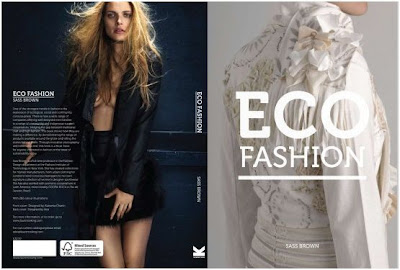| PRESS RELEASE / TEXTILE EXCHANGE |
‘Organic Exchange’ Becomes ‘Textile Exchange’ at 2010 Sustainable Textiles Conference
Organic Exchange (OE) will announce its expanded role as the organization driving development of the global sustainable textile industry under the new name, ‘Textile Exchange,’ at its annual conference in New York City on October 27-29, according to a
press release. The 2010 Sustainable Textiles Conference will introduce the new Textile Exchange and will be once again an opportunity for companies to understand the trends in the textile industry.
The non-profit organization has helped drive global sales of organic cotton apparel and home textile products to an estimated $4.3 billion in 2009. The broadened focus positions the organization to serve as the non-profit convener, catalyst, and market-maker for the sustainable textile industry worldwide.
Textile Exchange (TE) will work to increase the global market for sustainable fibers, focusing initially on those that are bio-based, organic, and recycled while retaining a core focus on organic cotton, according to the release. It will also tackle pressing textile industry production concerns such as water and air emissions, energy use and its impact on climate change, waste production, and the widespread use of toxic inputs.
According to the Textile Exchange, "Change is vital given the huge and unsustainable economic, environmental, and social costs of current textile production methods and a projected global population of over nine billion by 2050, all needing clothing and other textiles. A focus on textile sustainability enables the entire value chain to find cost savings and production efficiencies and pass those savings on to customers while reducing the impact of textile production on people and the environment."
The change will be announced at Textile Exchange’s Global Sustainable Textiles Conference, with approximately 300 textile industry-related representatives from 29 countries already registered to attend. TE’s global conference includes representatives from the U.S. Federal Trade Commission, adidas, Anvil Knitwear, C&A, Disney, Eileen Fisher, Gap, H&M, Lenzing, LL Bean, Nike, Nordstrom, Patagonia, Puma, REI, Target, Walmart, and Williams-Sonoma. Topics to be covered include sustainable textile processing, eco-indexing, traceability and transparency, organic fiber production, and environmental footprinting.
A one day seminar ‘Organic in a Day’ will also be held for newcomers as well as brands and retailers looking to include organic cotton in their supply chain, covering everything from fiber sourcing to online tracking, processing, certification, and consumer messaging.
The conference will cover discussions on natural textiles (cotton, silk, wool, hemp and linen), basics of dyeing, ensuring the integrity of product claims etc. as well as environmental impact of textile manufacturing and issues with organic cotton.
It will also throw light on the influence of latest technological developments on sustainability and textile industry. According to the Organic Exchange
newsletter, "With over seven billion people projected on the planet by 2011 and over nine billion predicted by 2050, our dependency on textiles and its current production methods comes at a huge and unsustainable economic, environmental, and social cost. Attending the 2010 OE Sustainable Textiles Conference not only provides the opportunity for an education about what is happening in the sustainable textile industry, it also offers the opportunity to connect with people committed to creating material change."















